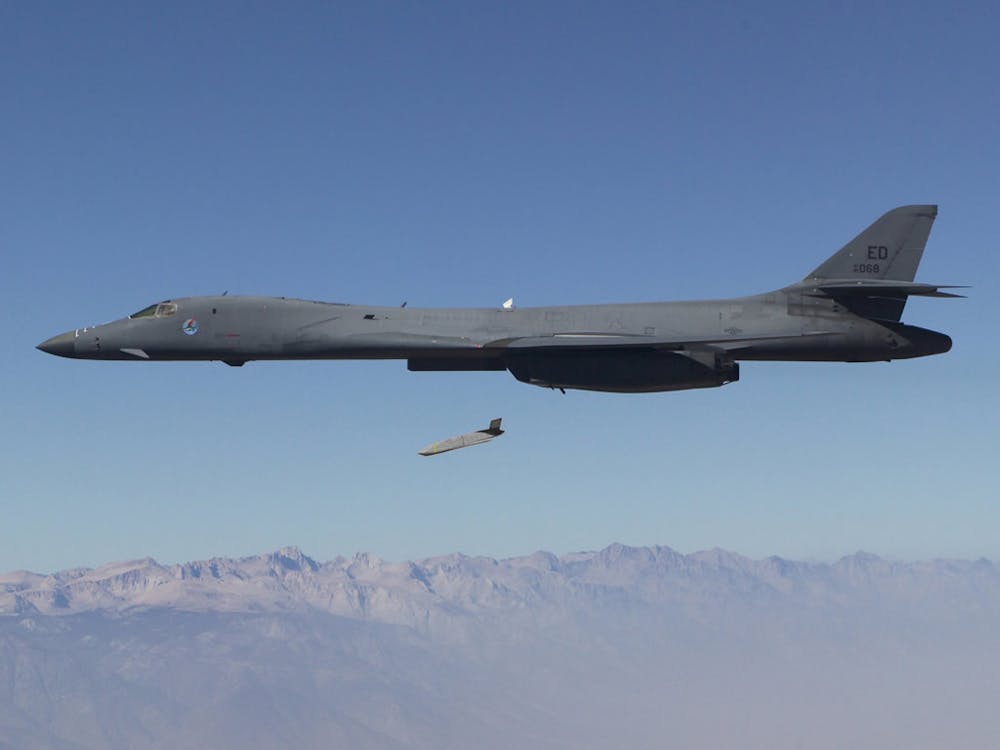By Janjabill Tahsin
Staff Writer
Three U.S. soldiers were killed and more than 50 others were injured, including some Arizona National Guard service members, in an overnight attack on Jan. 28 in northeast Jordan, near the Syrian border. At least one service member is in critical condition after a drone bypassed the American base Tower 22’s defenses and struck while soldiers were sleeping, according to the Washington Post.
The drone attack was not only the first targeting of American troops in Jordan during the Israel-Hamas war, but is the first to result in the loss of American lives. Spc. Kennedy L. Sanders, 24, Sgt. William J. Rivers, 46, and Spc. Breonna A. Moffett, 23, all of whom were from Georgia, were killed.
A statement from President Joe Biden said that U.S. officials are still gathering the facts of this attack, but state that it was carried out by Iran-backed militias operating under the umbrella organization the Islamic Resistance in Iraq. It was this group that claimed responsibility for the attack on Tower 22, according to the Washington Post.
Since the war between Israel and Hamas broke out in October, the Iranian-backed militias have struck American bases at least 166 times — over 60 times in Iraq and over 90 times in Syria — with a mix of rockets, missiles and one-way attack drones in retaliation for the U.S.’s support for Israel in the Israel-Hamas war. AP News reported that their aim is to push U.S. forces out of the Middle East.
In response to the fatal drone attack, the U.S. launched its first retaliatory airstrikes on Feb. 2, flying in B-1 long-range bombers and hitting a total of 85 targets at seven sites: four in Syria and three in Iraq. The U.S. targeted command centers, intelligence hubs and drone facilities of Iran’s Islamic Revolutionary Guards Quds Force and the local militia groups it supports, according to the BBC.
“The United States does not seek conflict in the Middle East or anywhere else in the world,” Biden said in a statement announcing the strikes. “But let all those who might seek to do us harm know this: If you harm an American, we will respond.”
While U.S. officials have stressed that they wanted to avoid a wider conflict in the Middle East, Defense Secretary Lloyd Austin said that the strikes on Feb. 2 were “the start of our response.”
“We do not seek conflict in the Middle East or anywhere else, but the President and I will not tolerate attacks on American forces,” he said in a separate statement. “We will take all necessary actions to defend the United States, our forces… and our interests.”
The U.S. strikes reportedly killed nearly 40 people, including 23 militia members guarding targeted locations in Syria, according to the Syrian Observatory for Human Rights, as well as resulting in injuries at multiple sites in desert areas.
While offering no specific threats, Iran’s President Ebrahim Raisi warned of potential retaliation for any U.S. strikes targeting its interests on Feb. 2, stating, “[We] will not start a war, but if a country, if a cruel force wants to bully us, the Islamic Republic of Iran will give a strong response.”
This sentiment was echoed by Harakat al-Nujaba, a major Iran-backed militia, which vowed to continue its military operations against U.S. forces the same day.







